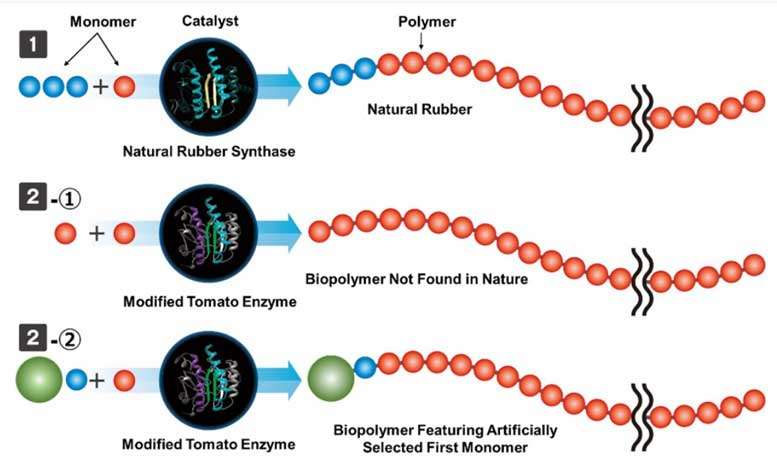Sumitomo Rubber Industries says that, as a result of joint research undertaken with Associate Professor Seiji Takahashi of Tohoku University, Associate Professor Satoshi Yamashita of Kanazawa University and Professor Yuzuru Tozawa of Saitama University, it has succeeded in synthesising new biopolymers that will accelerate the development of fuel-efficient tyres.

It adds that its research team recently discovered that the use of modified tomato enzymes (developed as part of prior research) as a polymerisation catalyst makes it possible to select polymer initial monomers at will. Based on this discovery, it has now succeeded in synthesising biopolymers incorporating initial monomers that are more conducive to improving tyre performance.
It adds, “Through our ongoing research, we aim to contribute to the realisation of sustainable societies by developing tyres that take fuel efficiency to all-new heights for the 2040s and beyond.”
It further states, “Our research team had previously succeeded in synthesising a biopolymer not found in nature by first identifying the segment of natural rubber synthase that plays a key role in determining polymer chain lengths and then replacing this segment with a similar segment of a specially modified enzyme derived from tomatoes. Having since furthered our research on modified tomato enzymes, we recently discovered that the use of modified tomato enzymes weakens initial monomer selectivity, which in turn allows for synthesis starting from monomers other than the initial monomers typically involved in the initiation of polymerisation. In addition, by taking advantage of this newfound characteristic, we have now succeeded in synthesising entirely new biopolymers incorporating initial monomers that we have selected at will.”

